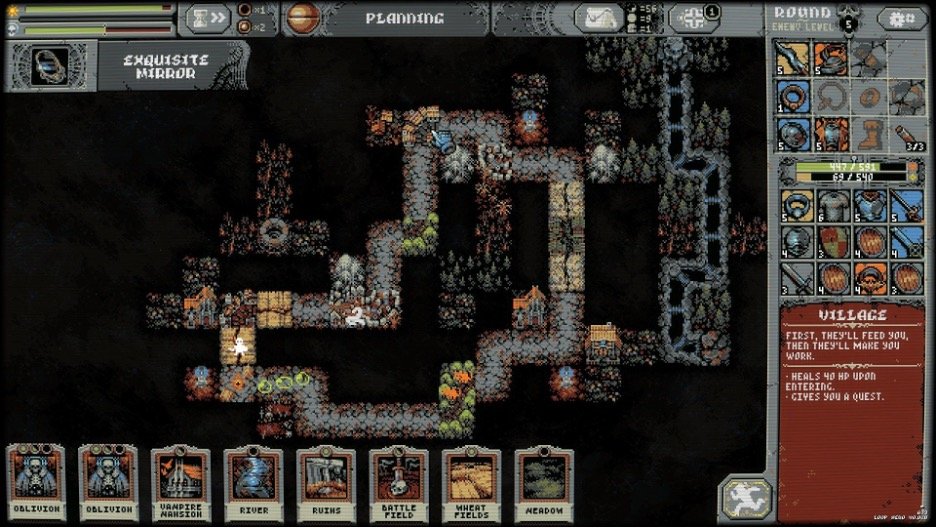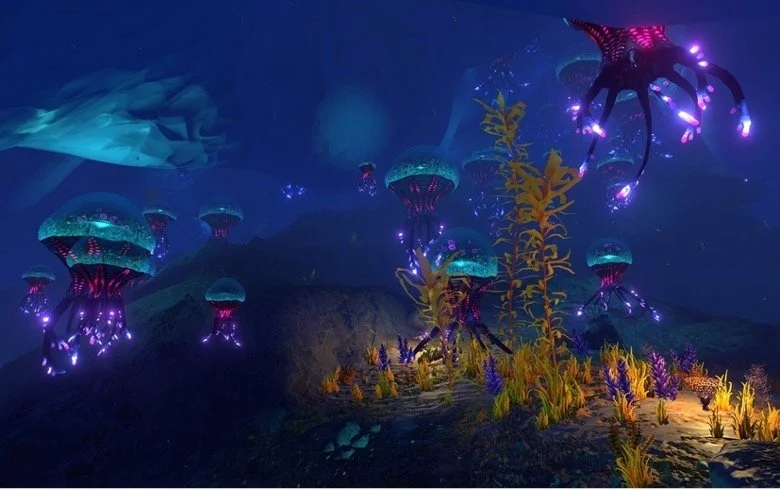Roger Whitson's 2021 Games of the Year: That Pandemic Gaming Life, Part 2
Roger Whitson, Managing Editor
While 2020 mythologized our locked-in pandemic experience with public celebrations of hospital workers and chants to “flatten the curve,” 2021 was a strange year of déjà vu and disappointments. The arrival of the vaccine gave hope that was quickly dashed with the appearance of new COVID variants. For me, it was a year of acquiescing to the inevitable and purchasing a PlayStation 5. I experienced the fun and graphically-dazzling yet ultimately disappointing Demon’s Souls remake. (I know, I know, it’s a good game and judging it after enjoying the quality-of-life updates in Dark Souls, Bloodborne, and Sekiro is probably unfair). I also saw what were, for me, the unexpected return of legendary franchises: Metroid: Dread, Psychonauts 2, Life Is Strange: True Colors. And there were a slew of disappointing games. I’d wanted to play a Garou in a videogame since I first learned of the Werewolf: The Apocalypse RPG in high school. Too bad Earthblood didn’t live up to the hype.
When preparing my Year in Gaming article for GwG , I decided to mention five games that I hadn’t discussed before and were worth reflection. These may not be my absolutely favorite games, but they were the games that were (for better or worse) exemplary of 2021 as a gaming year. I found things to love in all of them. I dropped out of a few, only to find myself interested in them later and starting over. And there were a lot of games that I simply couldn’t play. So, it’s a necessarily incomplete, surprising, and somewhat strange list — but the games on the list gave me a lot to think about and characterized a year that was likewise filled with gaps, timeloops, and disappointments.
Loop Hero. (Four Quarters)
No game challenged my assumptions about what a game could be in 2021 more than Loop Hero. A deck builder spliced with an RPG, Loop Hero gives you a series of cards representing enemies, buildings, and terrain. These represent memories lost due to the spell of a powerful lich who has enslaved the world. Meanwhile, the eponymous hero is on an automatic loop around whatever you put in their path — and gains loot and experience in the process. Some commentators have compared the game to cocaine, suggesting that the automated aspects of the game make it even more addictive. But I find the connection drawn by the game between trauma, remembering, and disassociation interesting as well. Several times in the game, the character encounters a survivor who either praises them or attacks them for their quest to restore memory and history to the world. Is it better to remember or forget trauma? How do we navigate the complexities of traumatic memories? Loop Hero’s take is complicated and fascinating.
Death’s Door (Acid Nerve)
2021 saw several great Zelda-likes, including Unsighted which I didn’t have the opportunity to play. In Death’s Door, you play a crow who works as a reaper in the Reaping Commission Headquarters. The Reaping Commission Headquarters is absolutely adorable and lends a gently subversive Kafka-esque flavor to this cartoony adventure game. As a reaper, you travel from one world to another — hunting powerful souls who have resisted the pull of death. While the overworld and dungeons recall Zelda’s formula, the precisely-timed rolls and soul-currency evoke the mechanics of Dark Souls. It’s important to say that Death’s Door is nowhere near as unforgiving as Dark Souls. As such, this game might be perfect for players who have resisted the difficulty of Dark Souls, yet are also curious about the Souls-likes. The only drawback I found occurs after defeating the Lord of Doors, when a final boss is revealed only after you undertake a series of increasingly monotonous jobs — like planting over 50 life seeds in pots scattered throughout the game. While I enjoy hidden bosses and additional challenges, I find these kinds of jobs to be unnecessary fluff to a game that is otherwise well-balanced in terms of challenge and reward.
Solar Ash (Heart Machine)
I almost didn’t play this game. I absolutely loved Heart Machine’s previous game: Hyper Light Drifter. The striking neon color palette and the ancient iconic language both stirred my imagination. Solar Ash utilizes the same color palette as Hyper Light Drifter, but almost everything else is completely different. You play Rei, a voidrunner who is trying to save her planet from falling into a black hole called the Ultravoid. Whereas Hyper Light Drifter famously included dashing in its hack and slash adventure, Solar Ash ups the ante by enabling the player to skate, boost, and railgrind across most of its three-dimensional surfaces. I’ve described Solar Ash as one-part Hyper Light Drifter and two-parts Tony Hawk Pro-Skater. Some reviewers have criticized this game for setting up difficult challenges and for ultimately being somewhat boring due to a lack of enemies. But I find Solar Ash’s focus on speed and momentum very different from what most other games are offering this season. There’s something so liberating about building up velocity with your skates, leaping into the air, and shooting your grapple — which flings you further — before you hit the boost and sail into the infinite.
Deathloop (Arkane Studios)
I didn’t finish Deathloop, which may seem strange given that I put it among the year’s best. Overall, I consider Deathloop to be a failure, for me its narrative alone couldn’t stand up to the nonlinear nature of the game. But what a failure. Arkane expanded upon and experimented with several features that made Dishonored and Prey great. I was particularly struck with the inclusion of Dishonored-like abilities “shift” and “nexus.” Further, while I couldn’t completely wrap my head around the non-linear aspects of Deathloop, I believe it (along with other loop-like games such as 12 Minutes) is really opening up new temporal possibilities for gaming. I loved showing up in levels at a particular time of the day, setting up a trap for an enemy, and then returning later to see that my enemy had sprung the trap when I wasn’t there. I also loved manipulating environments to change the outcome of particular days that I had already experienced a different way. Even if Deathloop isn’t my favorite game of 2021 or my favorite Arkane game, it shows that they’re willing to take risks with their formula. And I fully believe those risks will pay off sometime in the future — or maybe they already have in a different timeline?
Subnautica: Below Zero (Unknown Worlds, Shiny Shoe)
I don’t usually go for survival games. I didn’t even play the first Subnautica until recently. Below Zero plays like a DLC of the first game, but it retains many of the factors that made the first game so great: strange aquatic monsters, eerie noises, futuristic submersible technology. I’ve admittedly played few underwater games in my life, but I was fascinated by how much verticality added to the exploration portion of the game. Many times I found myself diving deeper and deeper and, while peering into a small crack in the ground, would notice a giant underwater cavern. I’d then eagerly dive into the cavern without checking my oxygen — and find myself trapped before dying from suffocation. Of course I’d rather not die, but the anecdote for me underscores just how inviting and mysterious Subnautica: Below Zero’s underwater spaces can be. I felt like an underwater Icarus diving too deeply into the sea and being lured to further and further depths.







